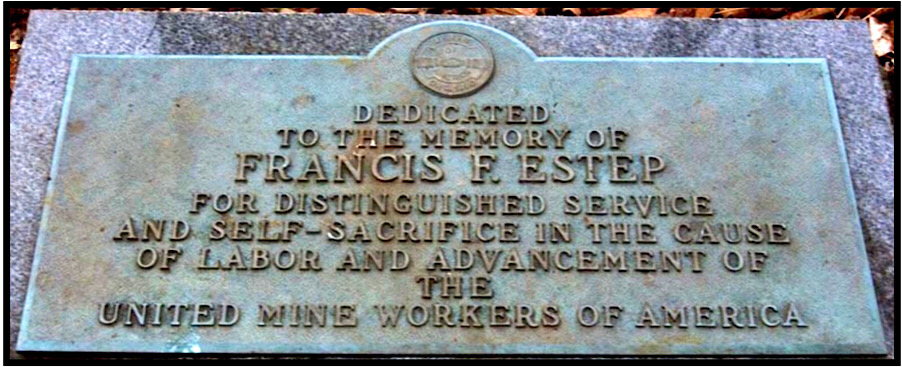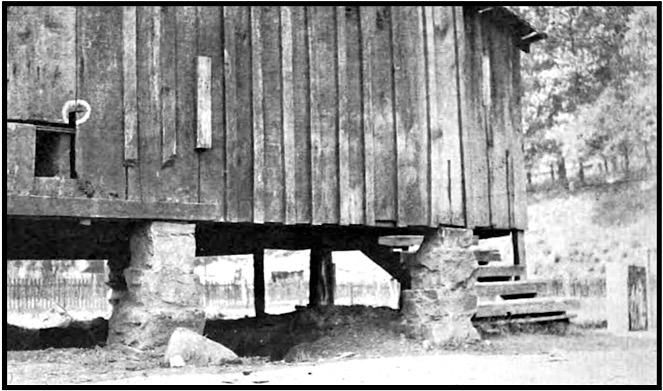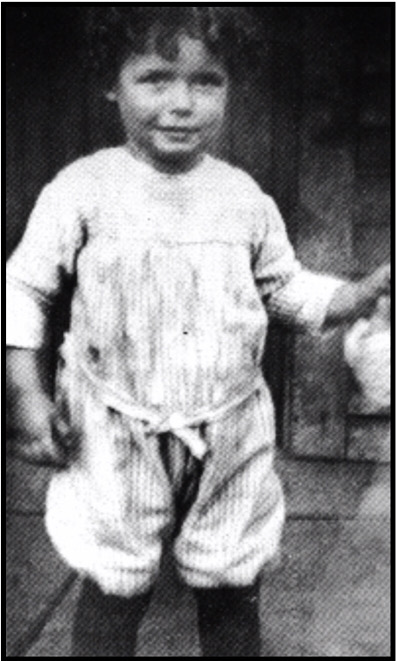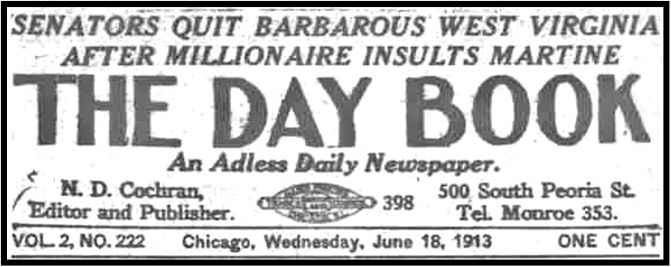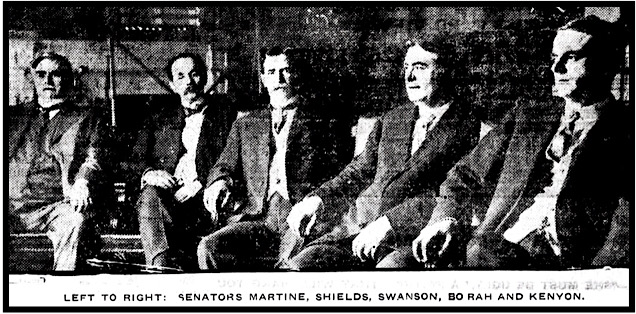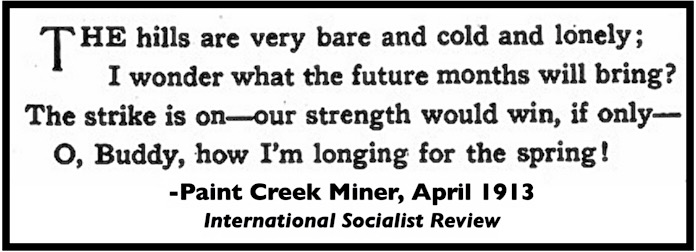 ————–
————–
Hellraisers Journal – Tuesday July 8, 1913
Socialist Editor Fred Merrick on the Betrayal of the West Virginia Miners, Part II
From the International Socialist Review of July 1913:
[Part II of II]
The National officials of the union called a convention April 22, 1913, at Charleston, of delegates from Paint and Cabin Creeks and Coal River strike zones. When this convention was convened it was found that more than 90 per cent of the delegates and two officials of the union were bitterly opposed to the governor’s proposition, which was simply the bare ultimatum of the operators. These delegates for days arose and rehearsed the year of bitter suffering as conclusive argument why they should not go, back on such a basis of compromise.
Day after day the officials argued and coaxed and threatened. The “pay-roll” worked the streets and hotel lobbies at night like ward heeling politicians, recalcitrant delegates were doped in saloons and every dirty trick known to labor union politics was attempted. On Wednesday evening Harold W. Houston, at that time Secretary of the Socia]ist party of West Virginia and attorney for the U. M. W. of A. made a radical Socialist speech which was applauded vigorously by the miners. He won their confidence.
But Friday, April 25th, rolled around and the “God damn red necks couldn’t be controlled,” a prominent official put it. The miners wouldn’t accept the compromise. Hatfield became impatient over the inability of Haggerty, Vasey & Company to deliver the goods, and he issued his ultimatum of April 25. With this as a club the officials tried to scare the “red necks,” but men who had fought Baldwin guards and faced machine guns and dum-dum bullets weren’t much afraid of the threats of a Hatfield.
So the last trick was pulled from the stacked cards of craft union politics. Harold Houston was approached. He was made to believe that it was the best thing for the miners to go back. He was then told that he was the only one the miners had confidence enough in to listen to and that if he would advocate their acceptance of the proposition the delegates would accede. Houston weakened and agreed that on condition that a communication be sent the governor interpreting “discrimination” to mean that no striker should be refused employment he would advise acceptance. This was done and the miners reluctantly followed the advice of their trusted lawyer “leader” and adjourned April 26th with the distinct understanding that the national officials would stand by them against any discrimination-that “all or none must return to work.”
But the operators saw that the miners had begun to weaken and they gave Hatfield to distinctly understand that the “agitators” would not be taken back. And despite the months of persecution and the imprisonment of many Socialists, there were scores more on the creeks. Hatfield, true to his capitalist interests, immediately issued his now famous 24-hour ultimatum of April 27th threatening deportation to all miners and sympathizers unless every miner in the strike zone was at work Monday morning, April 28th, and in this, distinctly said regarding the re-employment of all the strikers, “It would be presumptuous for me to tell employers whom they should employ.” Everyone understood immediately that the “agitators” would not get back. Hundreds refused to apply for work as being a violation of the action of the convention of April 22nd, and the solemn pledges of the national officials that they would stand by the men and support them in a continuance of the strike if they did not all get back.
Despite the governor’s outrageous and unconstitutional conduct which was in addition a violation of his own flowery promises, Joe Vasey, who had been conveniently left in charge of the situation by Haggerty, issued a statement to the press which was published Monday morning as follows: “At 9:30 p. m. Governor Hatfield called up the President at Clarksburg.” Yet with the villain responsible for these outrages present, Vice President Hayes, whose “Socialism” has been used as a bait for the radical miners for years, introduced Hatfield to the miners in a disgustingly laudatory fashion and the governor then proceeded to make a speech characteristic of the finished politician, in which he said he was the laboring man’s governor and that “By God the interests don’t control me.”
Following this was the advent of the Socialist National Investigating Committee. This committee’s report should be reviewed at length, but that is impossible here. Harsh terms must be used in dealing with it, but ample proof can be adduced for every charge including personal witnesses if necessary.
The writer charges that when Debs says that the conduct of the committee was received with rejoicing and enthusiasm he either ignorantly or intentionally misrepresents the facts as scores of witnesses can be produced to prove the contrary.
The writer further brands as absolute falsehood the statement that the court martialing of “Mother” Jones, Brown, Boswell, Parsons and others occurred under Glasscock. Hatfield was inaugurated on March 4th. The Governor had full control of martial law and under Hatfield’s administration the drumhead court martial sat on March 7th and placed on trial 51 persons. The sessions of this court continued until March 12th. More than this, it can be proven that the committee’s attention was called to this error before they left Charleston and yet they deliberately returned to Chicago and sent broadcast to the country a statement they had been informed was unqualifiedly false. Witnesses can be produced to prove this also.

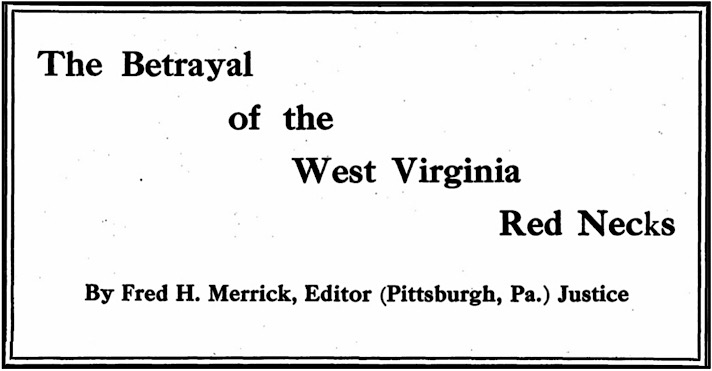
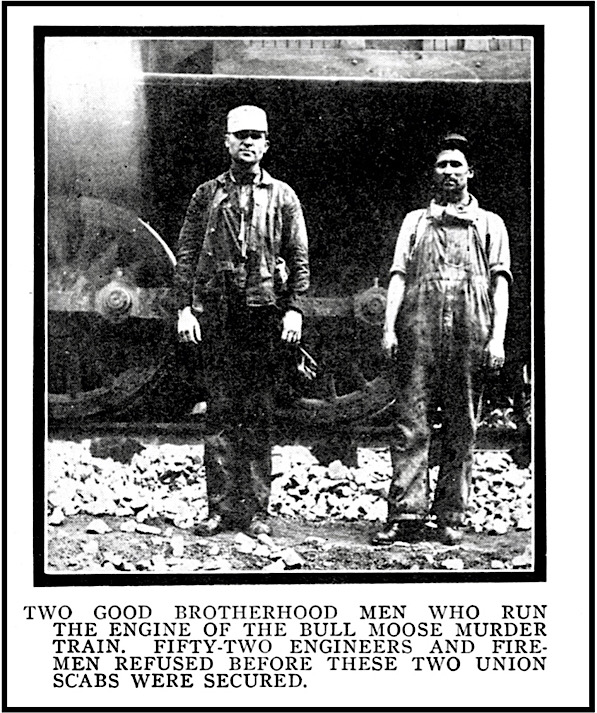
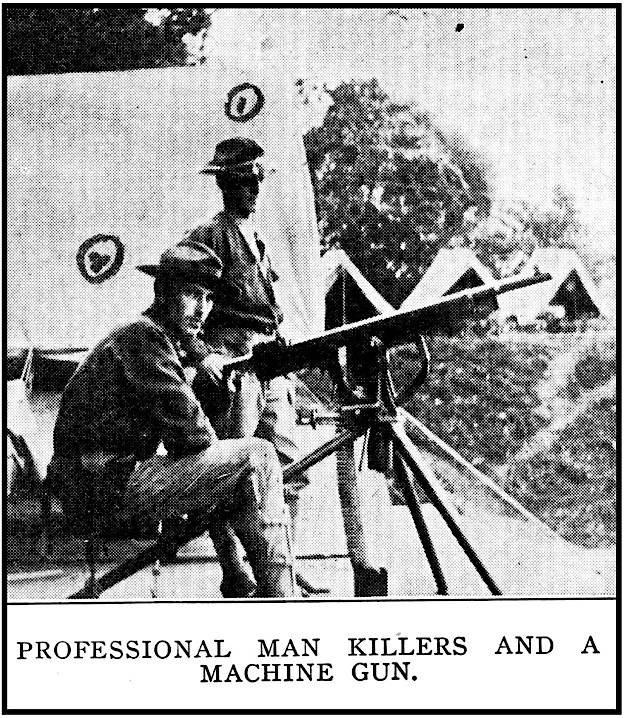
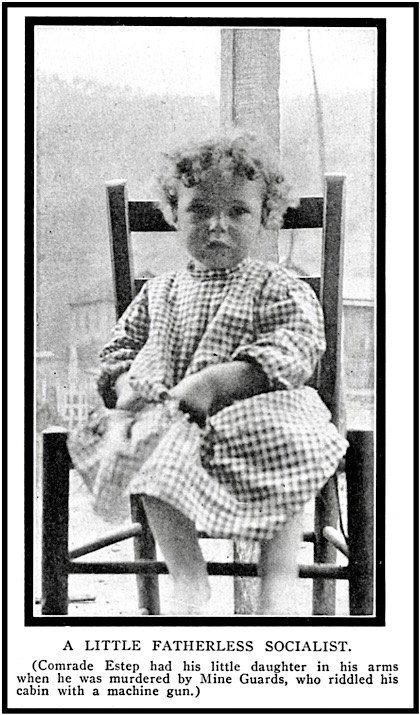
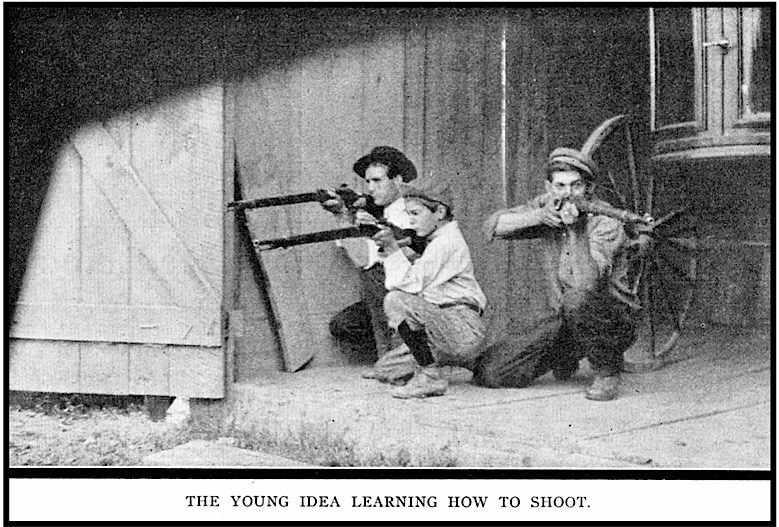
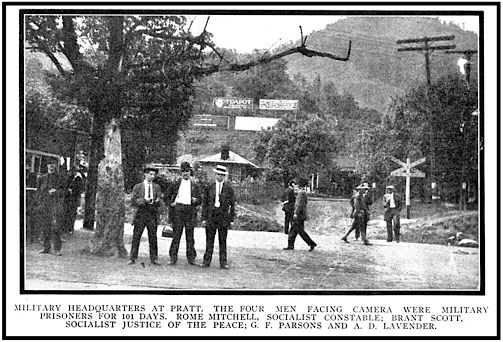
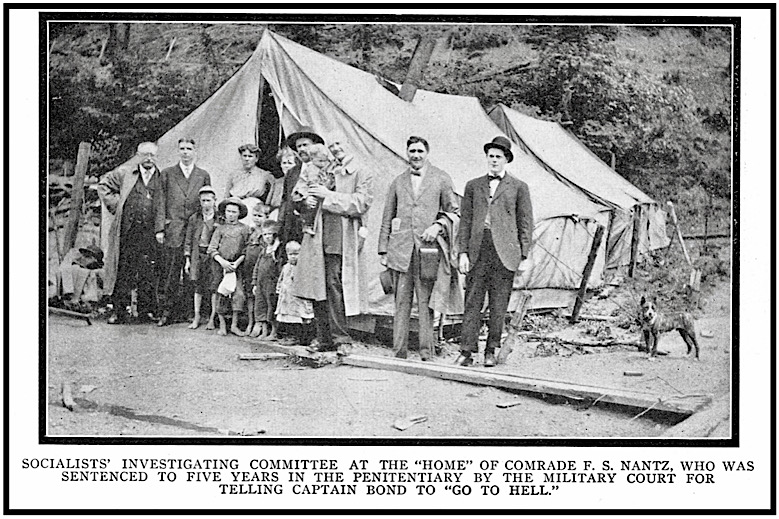
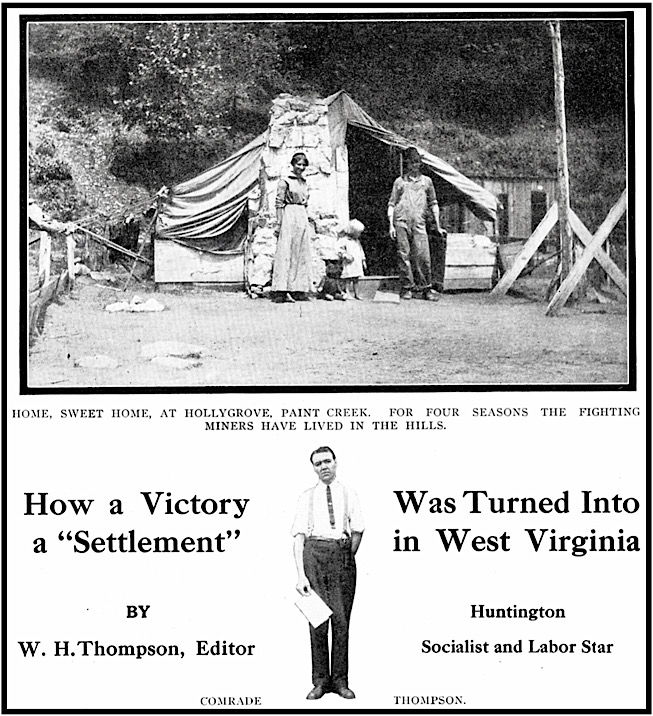
 —————
—————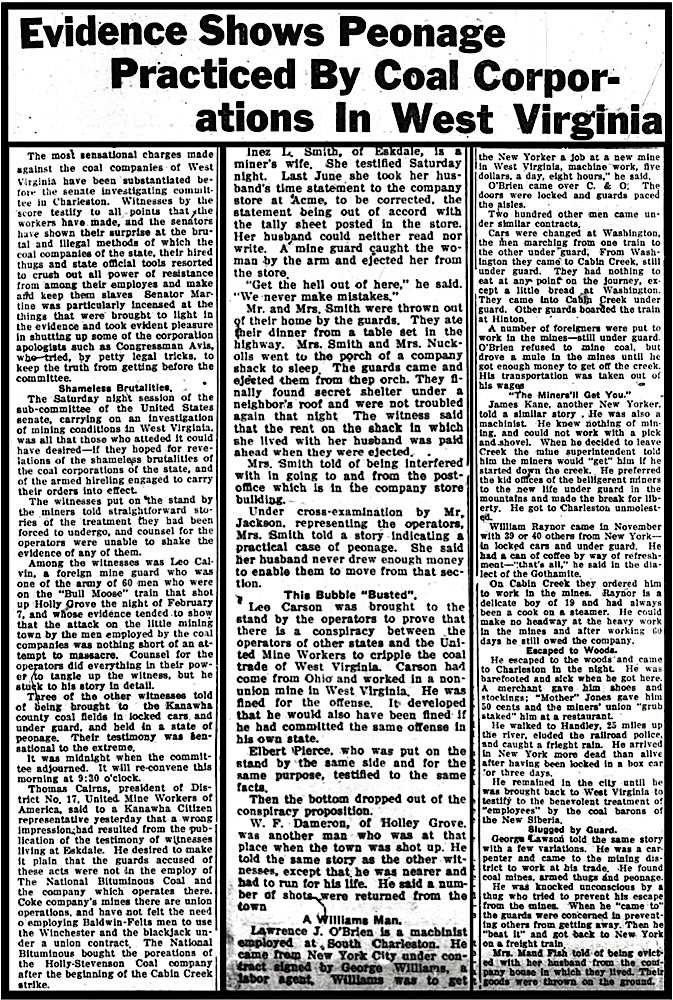
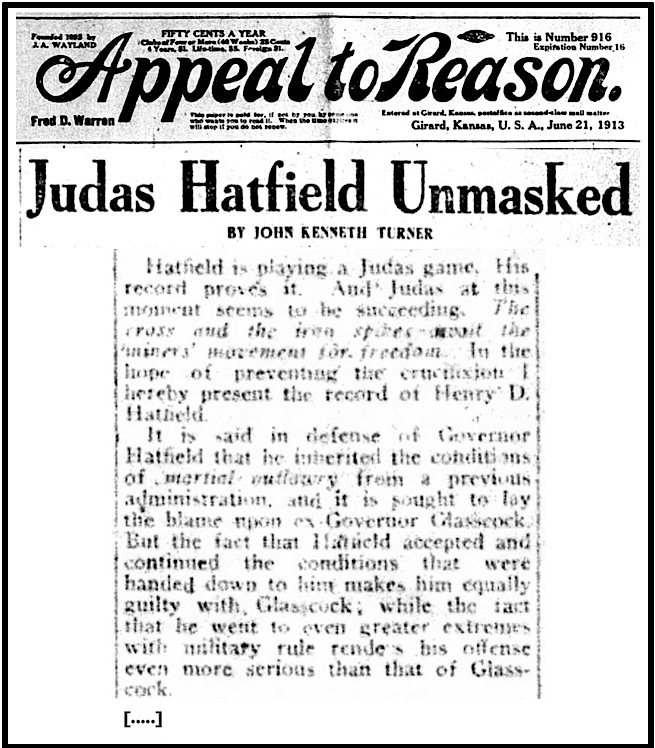
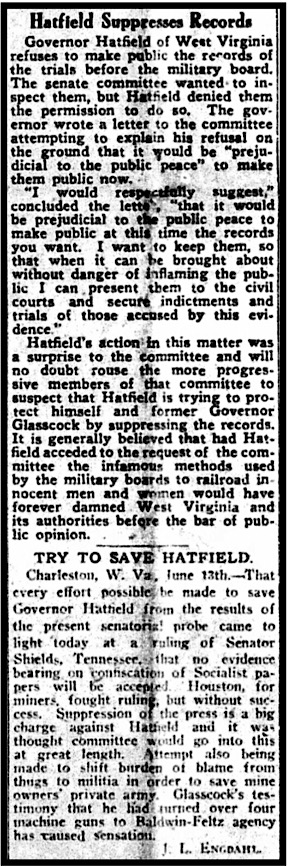
 —————
—————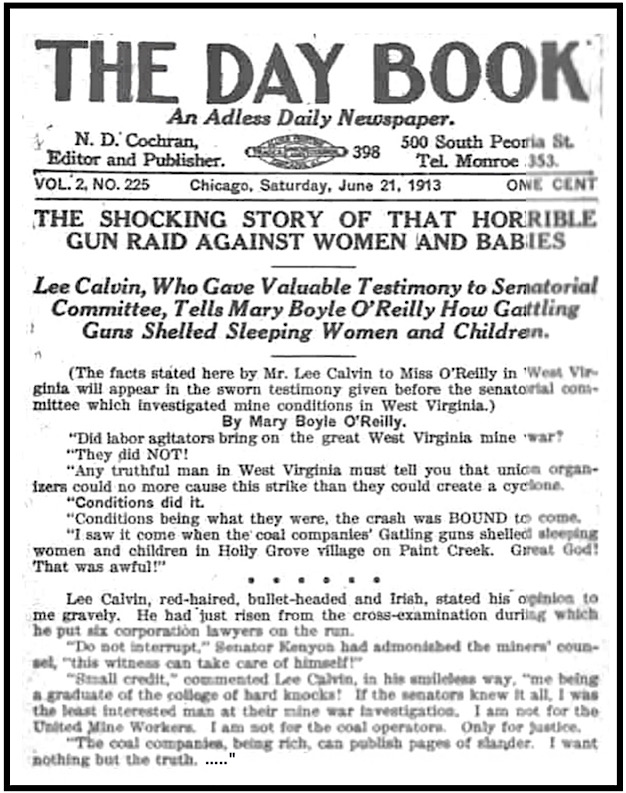
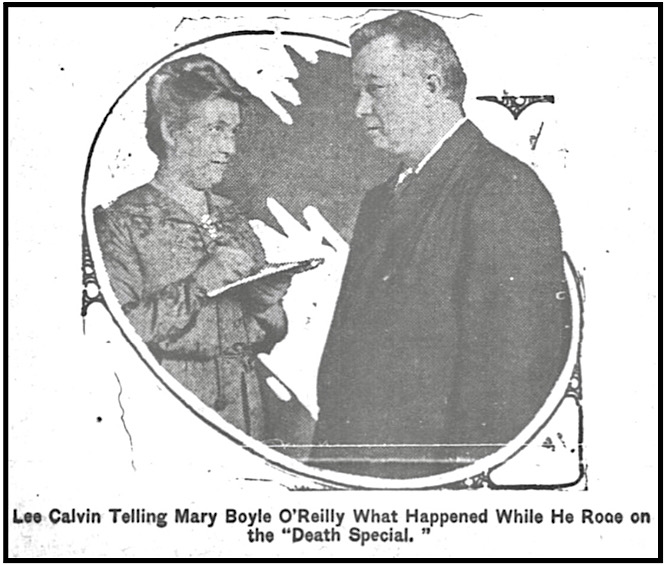
 —————
—————